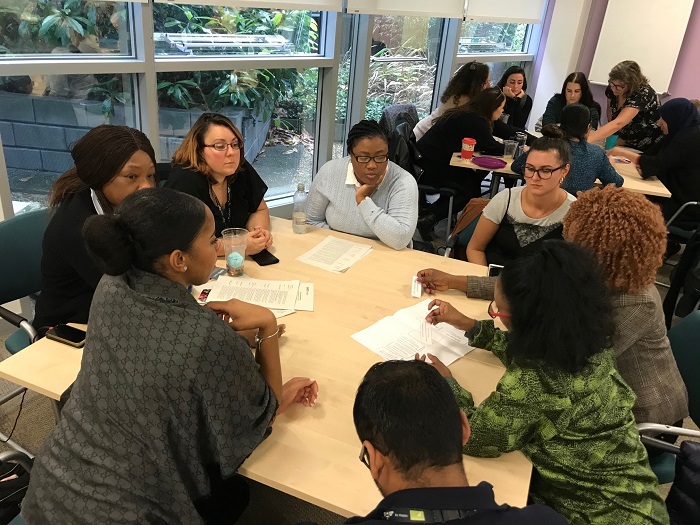Supporting unaccompanied and separated children in family based care
In 2018, 19,700 asylum seekers that applied for international protection in the European Union were unaccompanied minors. Many of them had been subjected to injury, trauma, and physical, sexual and psychological abuse during their journeys to and through Europe. Alternative care systems, such as family-based or foster care, have proven to be more beneficial for children’s development than institutionalised options, as they can get more individualised support and greater stability.
“Supporting un-Accompanied children with Family-based care and Enhanced protection” (SAFE) enables frontline practitioners, care professionals, and foster carers to enhance their knowledge, skills and confidence in providing better quality family-based care to unaccompanied and separated children. The project was implemented by the British Red Cross (UK) in partnership with KMOP (Greece), the Danish Red Cross (Denmark) and CARDET (Cyprus), with financial support from the European Union’s Rights, Equality and Citizenship Programme.
SAFE was established in line with the European Commission’s Communication on the protection of children in migration, which identified gaps in the protection offered to migrant children along the entire migratory route. The UK, Cyprus, Denmark and Greece all face significant challenges in adequately supporting these children and in providing them with suitable and appropriate family-based care. SAFE aimed to ensure better protection for unaccompanied and separated children arriving in Europe.

Project partners gathered data from best practices across the UK, Denmark, Greece and Cyprus to develop common guidelines, procedures and training opportunities at a pan-European level. Thanks to the project, care professionals and family-based carers can now access free online training courses in English, Danish and Greek. Core training courses provide a solid understanding of the situation of unaccompanied and separated children face in Europe, while country-specific modules are tailored to the national context. In addition to the online courses, the project included face-to-face training sessions, seminars, information days and conferences for care professionals, family-based carers, government officials, social services, NGOs, academics and healthcare providers. SAFE’s e-learning training is promoted both on the UK government information and services website and on the European Commission’s database of promising practices on the protection of children in migration.
“I work with the unaccompanied asylum-seeking children team. What we have learned in the training will be applied in daily practice - it was very useful”, shared a practitioner who participated a face-to-face training in Birmingham with social service providers from eight local authorities. “[I will apply this training] to help the children I work with, respect their identity and culture, and [help them] with their asylum claims”.
The project also importantly involved advocacy and public awareness activities, including the policy recommendation paper “Ensuring the best interest of the child and family unity in the Dublin process” and a short film about the experiences and the journeys of unaccompanied children travelling to Europe:
Filmed in the UK, Denmark and Greece, SAFE features the stories of five young people who have travelled from Afghanistan and Eritrea to settle in the UK and Denmark. They discuss their reasons for leaving their home country, the issues they faced on their journeys to Europe, and how they feel about the asylum process after their arrival. The film discusses the perils of children’s migratory journeys and the trauma they can develop as a result of past events in their home countries, as well as the psychological problems that can arise whilst waiting for an asylum decision from the authorities.
One child from Afghanistan who sought asylum in the UK explained his situation and feelings: “I feel sad because of my case. I am still waiting because my age has been disputed, the authorities don’t believe me. I have mental health problems from waiting so long, I feel like I cannot move. I self-harm because of my situation. Social workers should support, listen, help and care about you. People want to learn English and get on with their lives, they want to make friends. I feel very sad about my past, present and my future. I want to do something with my life.”
In October 2019, the SAFE project held their closing conference in Brussels, where partners shared country-specific key findings that resulted from the initiative. International experts from all four partner countries (UK, Denmark, Greece and Cyprus) presented topics regarding unaccompanied and separated children, such as age assessment, family reunification, the psychological impact of the asylum process on the child and integration and rehabilitation challenges.
“We should communicate better between us at a national level and work more effectively within the EU to improve the services provided to unaccompanied and separated children”, says Ghadah AL-Nasseri, SAFE project manager at the British Red Cross.
Basic information
Activity name
Supporting un-Accompanied children with Family-based care and Enhanced protection (SAFE)
Country
Cyprus, Denmark, Greece, United Kingdom
Duration
2017-2019
Partners
British Red Cross, Danish Red Cross, KMOP (Greece), CARDET (Cyprus)

